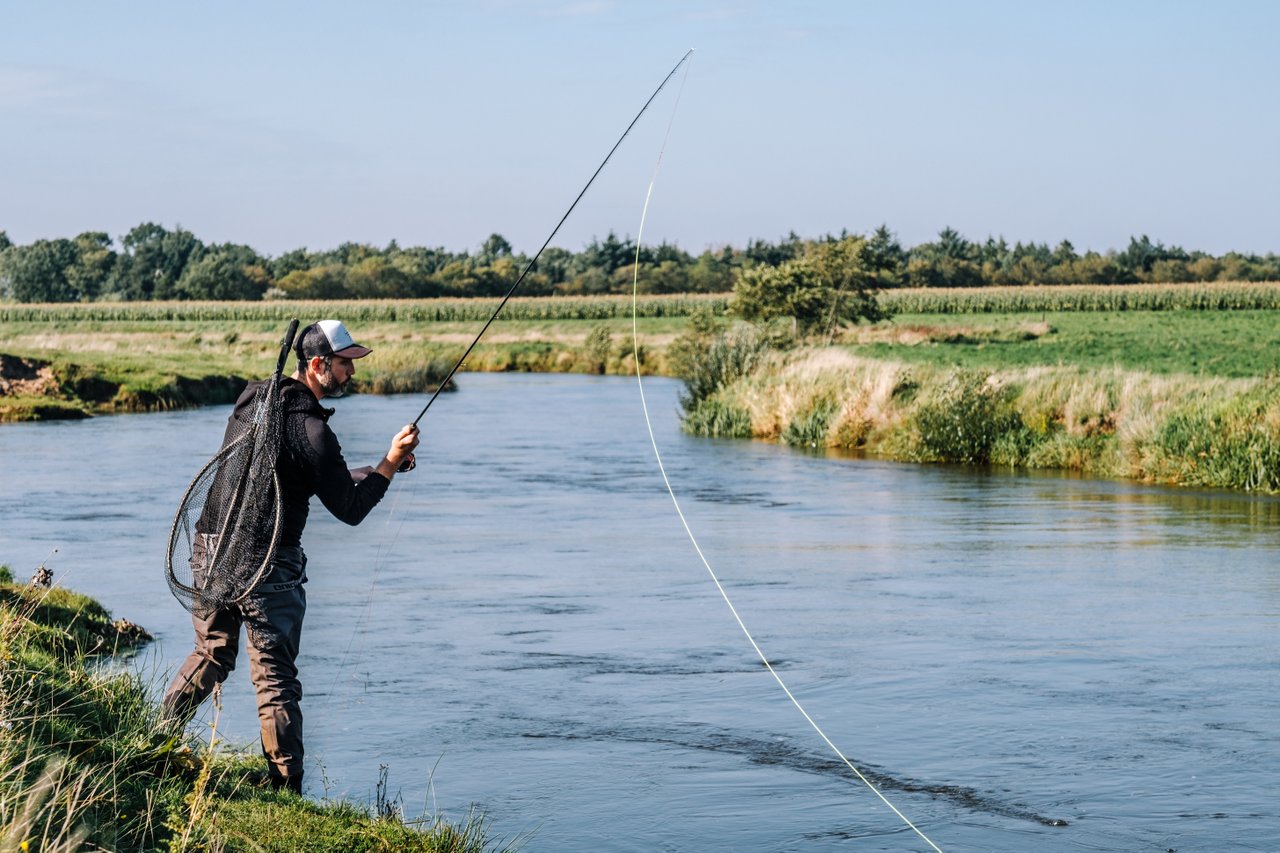The ongoing heated negotiations for a CO2 tax on the agricultural production sector may be about to shift course, after Climate Minister Lars Aagard called for Nitrogen pollution to be considered in the overall package.
Nitrogen is a crucial nutrient that helps plants and crops grow, and a key component of fertilisers.
But when excess nitrogen from agricultural sources leaks into rivers, lakes and marine waters, it overstimulates the growth of algae, causing oxygen depletion, suffocating plants and animals and turning thriving seabeds into bleached graveyards.
The condition, known as hypoxia, has now become so widespread in Denmark that, in the autumn of 2023, Aarhus University researchers investigating the damage declared the ”worst oxygen-depletion for 20 years”.
The Climate Minister points out that to include Nitrogen along with CO2-equivalent greenhouse gases in the green tax on agriculture would clean up the marine environment at the same time as the atmosphere.
“There is a synergy between these things, and the green tripartite must of course consider that, because it’s great to kill one bird, the climate – but imagine if we could kill two birds with one stone. It would be nonsensical not to try,” he told Politiken.
He also ventured that earlier expectations that the agricultural sector would voluntarily implement measures to reduce its emissions should be discarded, and tougher rules should be introduced for landowners and fisheries.
“The previous voluntary approach – you can see from the numbers – has not delivered. So now we need to adopt different measures,” he said.
“We can’t avoid it”
Aagard is himself a member of the ‘green tripartite’ – the group tasked with landing the CO2 tax legislation, comprising figures from Danish government, green NGOs and industrial and agricultural unions.
That he has brought Nitrogen compounds into the negotiations is significant because the tripartite mandate notes specifically that “the tripartite will not negotiate the marine environment and efforts to reduce Nitrogen, which will instead be addressed as part of a separate review of the Agriculture Agreement and a ‘second opinion’”.
But Nitrogen in the marine environment cannot be circumvented in the green tax on agriculture, says Aargard.
“We can’t avoid it. In concrete terms, we want another 250,000 hectares of woodland in Denmark. That’s a foundational part of the government’s mandate, and is also a theme in the green tripartite. Those trees have to go somewhere.”
“We could prioritise places where the soil already contains high levels of Nitrogen. This would provide not only long-term gains for the climate, but also for reducing Nitrogen,” he said.
The pledge to plant 250,000 hectares of new forested land – the equivalent of more than four times the total land area of Bornholm – is a part of Denmark’s 2030 strategy, whose overarching goal, outlined in the 2021 Climate Act, is to reduce greenhouse gas emissions by 70 percent compared with 1990 levels.
Broad agreement to include Nitrogen
Danmarks Naturfredningsforening (The Nature Protection Association), also a member of the green tripartite, argued originally for the inclusion of Nitrogen in the green tax on agriculture.
Likewise, economics professor Michael Svarer, who led the research behind the three potential taxation models on the negotiating table, has called it “difficult not to take Nitrogen into consideration”.
The sector organisation Agriculture & Food is not opposed to the idea. Chairman Søren Søndergaard calls it “completely natural” to aim for several environmental outcomes at once.
“It’s about finding climate tools that also benefit the marine environment. But the academic and technical work concerning marine plans and reduction targets in the water catchment areas should stay in the agriculture agreement,” he said.
Environment Minister Magnus Heunicke also agrees with the Climate Minister’s suggestion.
“I am 100 percent in agreement with Lars Aagaard. Both in his analysis of the scope of the problem and in the solutions he sketches. It’s something we’re working intensely on,” he said.
Heunicke is currently embroiled in a marine-environment scandal, after it emerged at the beginning of May that the west-coast Cheminova pesticide factory has been pumping hazardous levels of arsenic- and mercury-contaminated waste into the North Sea off Thyborøn for years, with the Ministry of the Environment has knowingly waving it through for years.
Climate spin
The debate on environmental legislation in Denmark has become increasingly politicised ahead of the EU Parliamentary elections on 9 June, Danish local elections in 2025, and the next general election, due some time before 2026.
Besides forming a roadmap to reduce greenhouse emissions and chemical pollution, the debate is also driving a political jostle to leverage the conflicting interests of the huge number of voters living in rural municipalities, consumers, industry lobby groups and the young, climate-focused demographic.














